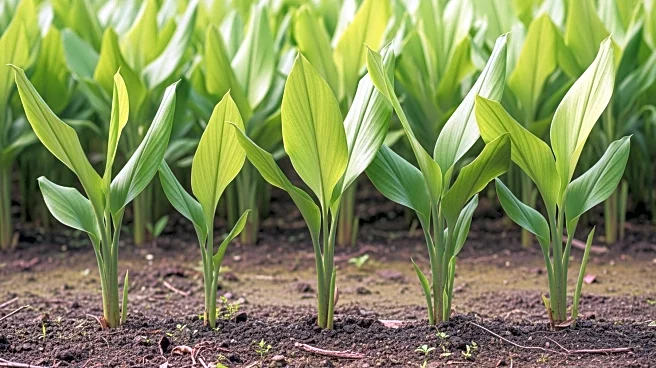What's Happening?
Research has shown that continuous cropping of Curcuma Kwangsiensis significantly alters rhizosphere microbial communities and soil properties, leading to a 58.87% reduction in yield. The study found that continuous cropping intensifies
soil acidification and disrupts microbial functions, affecting nutrient turnover and ecosystem processes. The microbial diversity increased, but the structure of bacterial and microeukaryotic communities was disrupted, impacting soil health and crop productivity.
Why It's Important?
The findings highlight the challenges of continuous cropping, which can lead to soil degradation and reduced agricultural productivity. This has implications for farmers and agricultural policy, as sustainable practices must be adopted to maintain soil health and ensure long-term crop yields. The study underscores the need for balanced soil management and crop rotation to prevent adverse effects on soil ecosystems.
What's Next?
Further research may focus on developing strategies to mitigate the negative impacts of continuous cropping, such as introducing beneficial microbial communities or adjusting soil management practices. Policymakers and agricultural stakeholders might consider promoting sustainable farming techniques to preserve soil health and enhance crop yields.
Beyond the Headlines
The study also raises questions about the long-term sustainability of intensive agricultural practices and their impact on soil biodiversity. It suggests a need for a holistic approach to farming that considers ecological balance and the preservation of natural resources.








